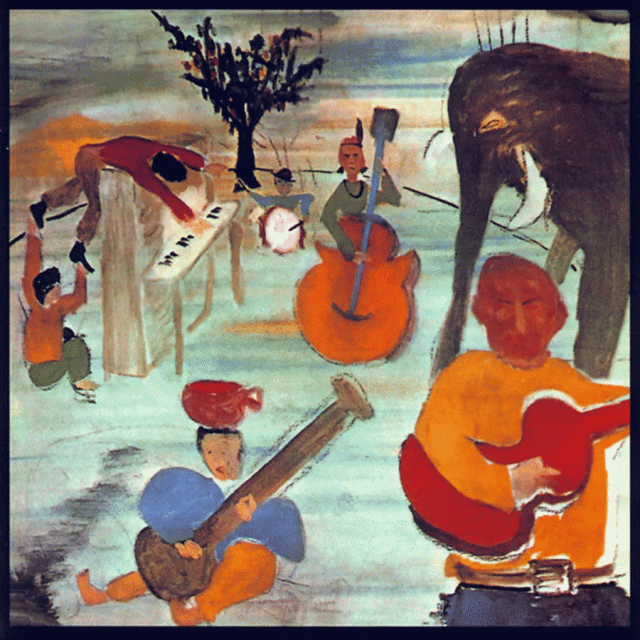Two decades ago, albums from The Band, Motörhead, Shellac and others were spinning away in my portable CD player. Here’s what I had to say about them back then (with some minor editing):
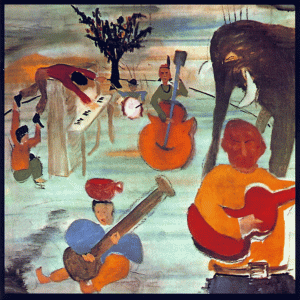 The Band
The Band
Music From Big Pink | The Band | Stage Fright | Cahoots Reissues
America made them rich and famous — but only Canada could have spawned a group like The Band. Think about it: Where else but in the Great White North could you find five guys so completely out of step with the world of American pop stardom? They weren’t handsome. They dressed like a bunch of morticians. With lead vocals split between three of them, no one was an obvious focal point. Even their name was a classic example of Canadian anonymity and passive-aggression: Depending on how you read it, they’re either a generic ensemble or the greatest group in existence.
Their music was just as quietly distinctive. An authentically rustic, rough-hewn monument to the blues, folk and bluegrass heritage of a bygone era, it was completely at odds with the psychedelic sound of the ’60s. With all that going for them, there’s no way The Band — guitarist Robbie Robertson, bassist Rick Danko, keyboardists Garth Hudson and Richard Manuel, and drummer Levon Helm, the group’s token Yank — ever should have become rock stars. But become stars they did, thanks to their magical, transcendent music. Sure, an early boost from Bob Dylan, who hired them to back him when he went electric, didn’t hurt. Mostly though, they earned it themselves, with a series of critically beloved, influential albums that blazed the trail for today’s roots-rock and alt-country scenes. Eight of those discs, from their 1968 debut Music From Big Pink to 1977’s swan song Islands, have just been given the reissue treatment — 24-bit remastering, unreleased tracks, extensive liner notes, yadda yadda yadda. I got the first four, and they are definitely worth checking out.
Big Pink and The Band, their first two discs, are the obvious starting point. Released in 1968 and 1969, these masterpieces could easily be combined into a greatest hits disc. Tears of Rage, The Weight, This Wheel’s on Fire, Chest Fever, I Shall Be Released, Rag Mama Rag, Up on Cripple Creek and The Night They Drove Old Dixie Down are all here in their ramshackle glory, remastered so clearly it seems like you’re in the room with the players. For a fan, that might be enough. Here it’s just the start. Between the two, you get 16 extra tracks — an entire album of new music and then some — all cut from the same wonderfully ragged cloth. There’s fiery bayou-blues (Yazoo Street Scandal), pleading country laments (Katie’s Been Gone), high-lonesome bluegrass (If I Lose), light-hearted barrelhouse piano (Orange Juice Blues), covers of Dylan’s Long Distance Operator and Big Bill Broonzy’s Key to the Highway, and alternate takes of several tracks. If you only want one Band album, either of these will do just fine.
The later albums have their moments too, mind you. Stage Fright, their darkly rich third album from 1970, is a self-portrait of a band wrestling with the burdens created by stardom and the vices encouraged by sudden wealth. The stressed-out tension that began to replace their easy camaraderie is the driving force behind tracks like The Shape I’m In, Time to Kill, the title cut and the sell-your-soul parable Daniel and the Sacred Harp. Alternate mixes of three tracks and a radio spot for the album, however, are more interesting than essential. Finally, 1972’s Cahoots is a one-step-forward, two-steps-back affair. It kicks off with one of The Band’s strongest tracks from this era, the joyful, horn-fuelled New Orleans bounce of Life is a Carnival. After that, though, it dissipates into a wistful, sombre portrait of a group coming apart at the seams. (In fact, this would be their last studio album of new material for several years.) Still, it has some worthwhile extras, including studio versions of their live faves Endless Highway and Don’t Do It, and a nice little ballad called Bessie Smith, with a lead vocal from Robertson. All in all, not bad for a bunch of Canadians, eh?
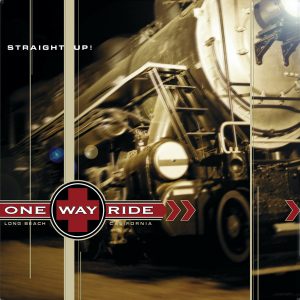
One Way Ride
Straight Up!
Finding a band with even a speck of distinctiveness among the cookie-cutter clones of nu-metal ain’t easy. But Long Beach quartet One Way Ride manage to break the mould — or at least bend it a little. Yes, the gritty guitars and big, chest-beating pipes of one-named singer Leldon are the stuff of 1,000 post-grunge albums. But here and there the band toss in an unexpected flourish: Plenty of strummy acoustic guitars, pop melodies and the occasional rockin’ banjo; some dark, brooding Southern gothic vibes; and nods to classic artists including The Who, The Rolling Stones and Phil Spector. Taken as a whole, it puts One Way Ride somewhere between a nu-rock Everclear and a heavy metal Hootie. Which may not exactly be earth-shaking — but you gotta admit, it’s different.
 The Urge
The Urge
Too Much Stereo
I’ll say this for The Urge: They don’t make the same mistake twice. Back when they started in the mid-’90s, they were one of the jillion ska-punk bands on the market. Now that the scene has gone dormant again, it seems this St. Louis sextet have decided it’s best not to become identified with any particular genre. So their fifth album carefully treads a path through several styles — ska, punk, rock, pop, reggae, funk, rap, hip-hop, modern rock — without ever really committing to any of them. The bouncy pop grind of single What Is This and the title track are certainly catchy enough — though in the former case it’s because its bass groove recalls Curtis Mayfield’s Freddie’s Dead. The bottom line is, only a few bands (Fishbone spring to mind) can pull off this sort of pop-pastiche musicality, and The Urge ain’t one of them. While all their musical wandering admittedly keeps Too Much Stereo from becoming monotonous, it also prevents it from becoming much of anything.
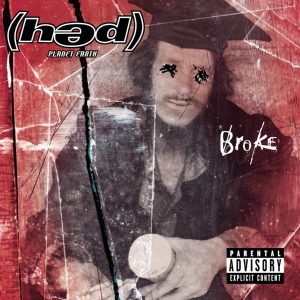 (hed) Planet Earth
(hed) Planet Earth
Broke
You know a trend is on the wane when bands start denying they’re part of it. The annoyingly named (hed) Planet Earth point out in their press kit that they’re not a rap-metal band — they’re a “g-punk” group. Right. And this isn’t a music review, it’s a sonic evaluation. Come on boys, let’s call a spade a spade. After all, their second album Broke is nothing to be ashamed of. Sure, they’re mixing up the same Korn-y Molotov cocktail of slamming goth-metal and hard-hitting hip-hop. But hey, they do it just as well as anybody else out there. And when they rip off somebody — like when they use the chorus of Rare Earth’s I Just Wanna Celebrate for the single Bartender — they’re man enough to own up to it. And they’re definitely foul-mouthed enough to appeal to the teenage demographic. Still, the best thing about Broke is surely the possibility that it might signal the beginning of the end for rap-met… er, g-punk.
 Motörhead
Motörhead
We Are Motörhead
There are two kinds of people: Those who understand that Lemmy is God and those who haven’t figured it out yet. For those in the former category, Mr. Kilmister and his genteel colleagues in Motörhead offer up another 10 headbanging hymns to the faithful, anchored as always by Lemmy’s distorted lead bass and pained Sasquatch howl. Frankly, aside from a weirdly reverent cover of The Sex Pistols’ God Save the Queen and a hilarious power ballad called One More Fucking Time, this disc isn’t much different from the last two or three dozen Motorhead albums. But that’s exactly as it should be. Motörhead don’t have to worry about being trendy. They know exactly who they are. Just ask Lemmy. “We are Motörhead,” he bellows on the title cut, “born to kick your ass.” Yes they are. And yes they do — one more fucking time.
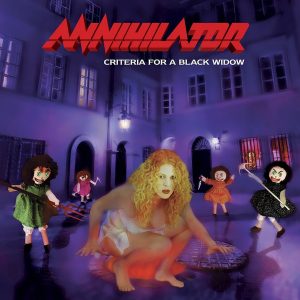 Annihilator
Annihilator
Criteria For A Black Widow
OK, so maybe a reunion of ’80s thrashmasters Annihilator isn’t going to make the cover of Rolling Stone. But it could very well make the cover of Kerrang!, and that’s probably all Annihilator’s control-freak guitarist/ songwriter/producer Jeff Waters could ask for. And if you’re a fan of Waters’ guitar-shredding fury and bombastic songcraft, then Criteria For a Black Widow is all you could ask for. Teaming up again with original singer Randy Rampage and drummer Ray Hartmann, Waters turns in his first North American release in seven years. Luckily it’s also his best work in years, full of Slayerish speed-demon rage and wickedly over-the-top insanity. Sure, we could all do without his 12-minute monologue on his divorce and how he recorded the album in his bedroom — did I mention he’s a control freak? — but Black Widow still meets anyone’s criteria for a decent metal album.
https://youtu.be/5dKmHEOgrxY
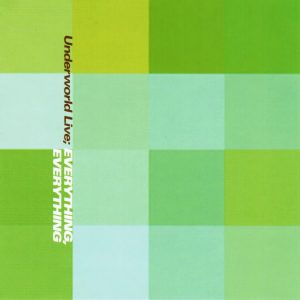 Underworld
Underworld
Underworld Live: Everything, Everything
There’s a good reason electronica, house, jungle and drum ‘n’ bass acts don’t often issue live albums — without the smoke and lights and video screens and the whole rave scene that goes with the music, all you’ve got left is an album of two guys twiddling knobs, adjusting volumes and panning samples. Not exactly Hendrix at Woodstock. Don’t get me wrong; Underworld are one of the genre’s finest acts, from 1993’s innovative dubnobasswithmyheadman to last year’s bar-raising Beaucoup Fish. The success of Born Slippy from Trainspotting proves I’m not alone in that opinion. Still, despite a fine set list here — along with Slippy, the Fish-heavy set includes Cups, Push Upstairs, Jumbo and King of Snake — the biggest difference between this and their other albums is slightly poorer production and applause between songs. Start with the studio albums instead.
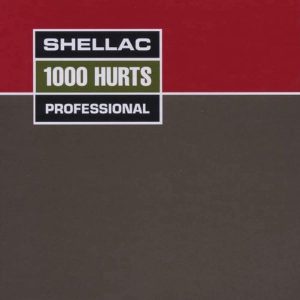 Shellac
Shellac
1000 Hurts
You might not like Steve Albini, but you’ve gotta respect him. He could sell out and rake in big bucks producing every crappy band that ponies up a big record-company payout, but instead the incorruptible Chicagoan prefers to set his agenda based on what turns his crank instead of what fattens his wallet. Not surprisingly, that seems to be the same way he approaches making his own music with his trio Shellac. 1000 Hurts, their third disc, doesn’t really break any new ground — like its predecessors, it’s a collection of angular guitar lines, hypnotically repetitive rhythms, oddball time signatures, noise-rock squalls and twisted lyrics (especially Prayer to God, when Steve petitions the Almighty to inflict painful deaths on his unfaithful ex and her lover). OK, so it doesn’t push the envelope. Frankly, it’s just nice to hear a record that you know was written without even the slightest thought for commercial potential, marketing or playlists. You might not like 1000 Hurts, but you’ve gotta respect that.
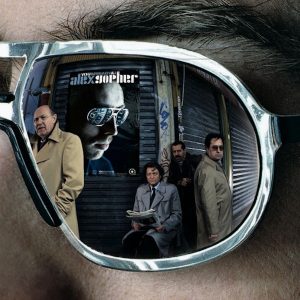 Alex Gopher
Alex Gopher
You, My Baby & I
To describe Parisian dance-music composer and producer Alex Gopher as a cross between Air and P-Funk isn’t only a compliment — it’s also a statement of fact. A decade ago, Gopher (who takes his name from the Love Boat purser) was in a band with future Air-men Nicolas Godin and Jean-Benoit Dunckel. So, it’s no wonder that You, My Baby & I is a familiar-sounding cocktail of atmospheric, ambient electronica and booty-shaking disco. The Mothership connection comes in the form of Michael (Clip) Payne and Gary (Mudbone) Cooper, two veteran P-Funkateers who lend their soulful pipes to muscular, get-down-on-the-one workouts like Time and Party People. The most memorable tune, The Child, features another vocalist, however — Billie Holiday, whose God Bless the Child is sampled, deconstructed and reset atop a smoky chillout groove a la Moby. Strange it may be, but you should get a kick out of You, My Baby & I.
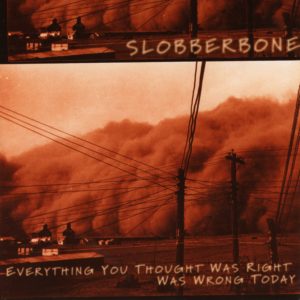 Slobberbone
Slobberbone
Everything You Thought Was Right Was Wrong Today
In cartoonland, Mel Blanc was the Man of 1,000 Voices. When you’re talking roots-rock, however, Slobberbone singer Brent Best is the man to beat when it comes to vocal variety. On his Texas foursome’s rambunctiously rocking third album, the singer-songwriter’s sound changes from song to song — and always, it seems, into the voice of someone you recognize. One minute you’d swear he’s Shane MacGowan from The Pogues; the next he’s apparently morphed into Billy Bragg (minus the accent), or Bobby Bare Jr., or Bruce Springsteen, or Paul Westerberg, or even Tim Armstrong from Rancid. The band, meanwhile, take a more consistent tack, laying down a dozen tracks that emphasize the rock in roots-rock, crossing the banjo balladry of Marah with the punky snarl of The Replacements. Someday, Best is going to have to settle on a sound of his own — but for right now, there’s nothing wrong here.
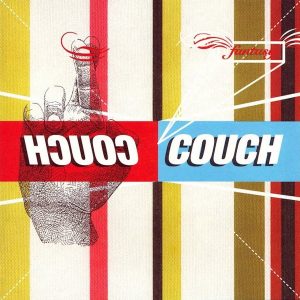 Couch
Couch
Fantasy
Damn. Where did I put that press release? I can’t very well review the new Couch album without knowing diddley-squat about them. OK, think, think … Couch. There’s four of them. They’re from Berlin. They play instrumentals. This is their third album. They’re kinda proggy, a little like Can — geez, that’s a real unique thing to say about a German band, you idiot! Well, I guess I could mention that sometimes they’re kinda spacy and post-rockishly mathy, and then other times they rock out in a decidedly heavy sorta way, with soaring, intertwining guitars like Mogwai, Sonic Youth or Pavement on some serious uppers. Oh yeah, brainiac, that’s great. Nobody’s going to buy a band being proggy, spacy, post-rock, mathy and heavy at the same time. Geez, I better find that bio. Did I look under the sofa? Shoot! Not there. Ah, never mind. Nobody will know the difference.
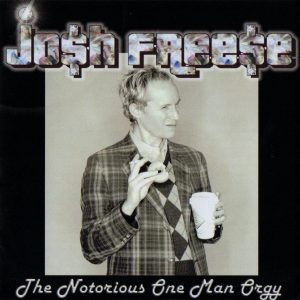 Josh Freese
Josh Freese
The Notorious One-Man Orgy
Josh Freese’s publicity bills him as the “best drummer in the world.” That might be a tad hyperbolic. But he might very well be the busiest drummer in the world. Along with being about the 812th guy to pound the skins for Guns ‘N Roses, he also plays, tours and/or records with Devo, A Perfect Circle, The Vandals, Nash Kato, Juliana Hatfield, Chris Cornell, Tracy Bonham, John Doe, Mary Lou Lord, Paul Westerberg, Wayne Kramer, Dweezil Zappa and … well, you get the idea. Presumably, he had a spare hour or two one day, so now alt-rock’s answer to Kenny Aronoff has his own solo album. Notorious One-Man Orgy is a dozen DIY tracks of gorgeously goofy punk-pop — part Vandals, part Devo, part Dickies — with Mr. Freese playing almost all instruments and yelping in his surprisingly strong snot-punk voice about rockin’ chickens, partying with Marilyn Manson at the Playboy Mansion, and his unrequited love for TLC’s Left Eye. If this drumming thing doesn’t pan out, he’s a shoo-in for best one-man band in the world.
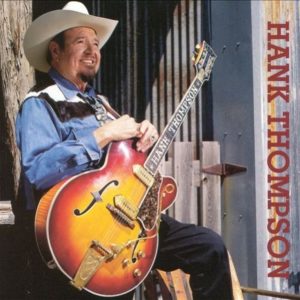
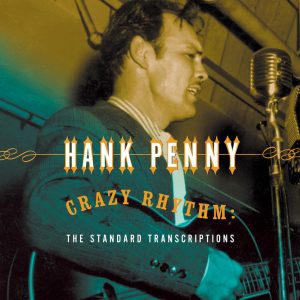 Hank Thompson
Hank Thompson
Seven Decades
Hank Penny
Crazy Rhythm
It’s one of those chicken-and-egg conundrums: Do all guys named Hank sing country, or do all country singers call themselves Hank? This month, there’s not one but two new offerings from old-time Western swingers named Hank. They may not be the most famous Hanks in country, but both can boast careers longer than a certain Hiram Williams. Hank Thompson’s Seven Decades refers to the length of this honky-tonker’s career, which began in the ’40s and continues to this day. Basically bridging the generation gap between Bob Wills and Asleep at the Wheel, Thompson’s countrypolitan style has aged like a fine sour mash — rich and smooth but still with plenty of punch. Here, he mixes it up, tossing tongue-in-cheek novelties like Lobo the Hobo and Condo in Hondo in with classics like Wreck of the Old ’97 and dropping Tejano melodies and hillbilly jazz in with the two-steppers. He’s having such a good time you wish you could get seven more decades of Hank. Like Thompson, dapper postwar hillbilly crooner Hank Penny is all smiles, at least on the mike. But according to his bio, offstage he was a sumbitch with a mean streak so wide it thwarted his career. Thankfully, we still have Crazy Rhythm, 30 tracks taped for radio broadcast in 1951 with a crack band that included teenage vocalist and future Gong Show regular Jaye P. Morgan. But even she can’t shine brighter than Penny, who grins, winks and croons his way through snappy swingers, crackling twangers and boogie-woogie pop ditties like Hold the Phone, Flamin’ Mamie and White Shotguns, paving the way for the likes of Commander Cody and BR5-49. Penny and Thompson: Hanks for the memory.













